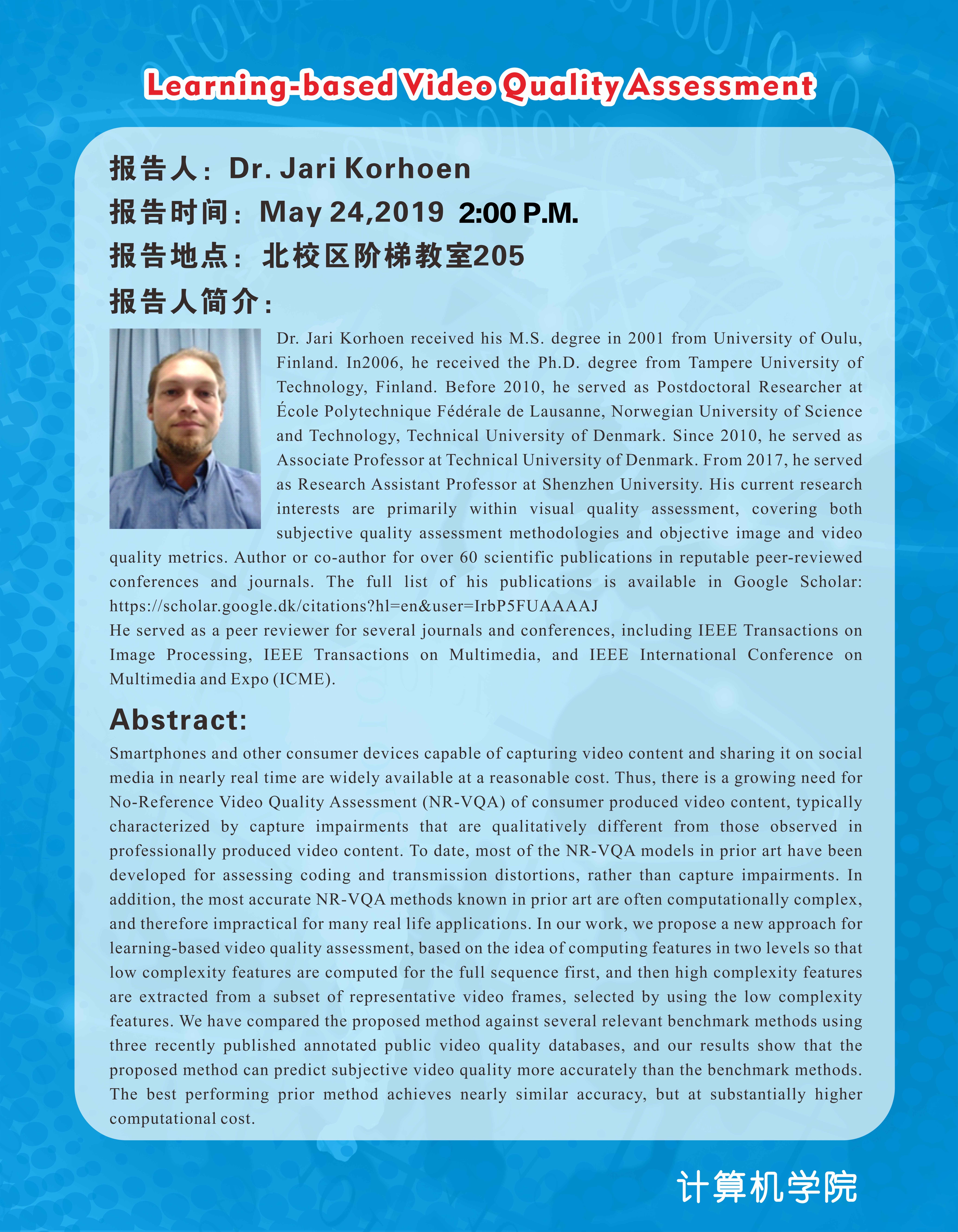报告题目:learning-based video quality assessment
报告人: Dr. Jari Korhoen
报告时间:May 24,2019,14:00
报告地点:北校区阶梯教室205
报告人简介:
Dr. Jari Korhoen received his M.S. degree in 2001 from University of Oulu, Finland. In2006, he received the Ph.D. degree from Tampere University of Technology, Finland. Before 2010, he served as Postdoctoral Researcher at École Polytechnique Fédérale de Lausanne, Norwegian University of Science and Technology, Technical University of Denmark. Since 2010, he served as Associate Professor at Technical University of Denmark. From 2017, he served as Research Assistant Professor at Shenzhen University. Author or co-author for over 60 scientific publications in reputable peer-reviewed conferences and journals. The full list of his publications is available in Google Scholar: https://scholar.google.dk/citations?hl=en&user=IrbP5FUAAAAJ
He served as a peer reviewer for several journals and conferences, including IEEE Transactions on Image Processing, IEEE Transactions on Multimedia, and IEEE International Conference on Multimedia and Expo (ICME).
Abstract: Smartphones and other consumer devices capable of capturing video content and sharing it on social media in nearly real time are widely available at a reasonable cost. Thus, there is a growing need for No-Reference Video Quality Assessment (NR-VQA) of consumer produced video content, typically characterized by capture impairments that are qualitatively different from those observed in professionally produced video content. To date, most of the NR-VQA models in prior art have been developed for assessing coding and transmission distortions, rather than capture impairments. In addition, the most accurate NR-VQA methods known in prior art are often computationally complex, and therefore impractical for many real life applications. In our work, we propose a new approach for learning-based video quality assessment, based on the idea of computing features in two levels so that low complexity features are computed for the full sequence first, and then high complexity features are extracted from a subset of representative video frames, selected by using the low complexity features. We have compared the proposed method against several relevant benchmark methods using three recently published annotated public video quality databases, and our results show that the proposed method can predict subjective video quality more accurately than the benchmark methods. The best performing prior method achieves nearly similar accuracy, but at substantially higher computational cost.




